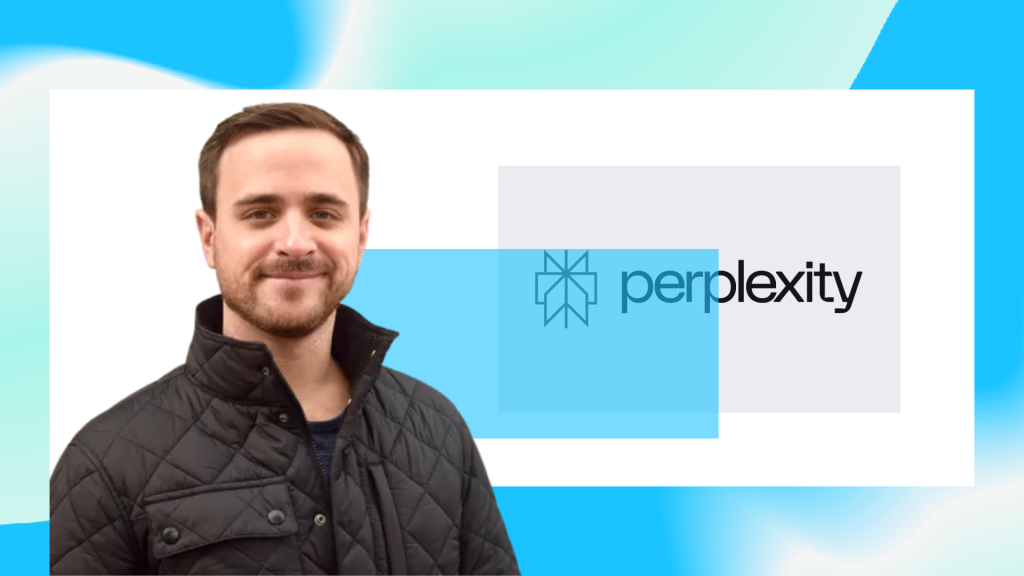Welcome back to Neural Notes, a weekly column where I look at how AI is affecting Australia. In this edition: Perplexity AI’s Ryan Foutty on the ChatGPT competitor’s business model and why the startup doesn’t want to be Google.
“We see ourselves as a consumer product company. We’re building a tool for people to use, versus just an AI company,” Perplexity’s vice president of business Ryan Foutty told SmartCompany earlier this week.
It’s a bold claim for a startup built on generative AI infrastructure. But according to Foutty, while other AI players are focused on foundational models or enterprise APIs, Perplexity positions itself as a consumer tool. It sees itself as a next-generation search engine built for speed, clarity and general utility.
Founded in 2022, the company has raised approximately US$1.2 billion in funding over six rounds, with notable investors including SoftBank, NVIDIA and Jeff Bezos.
In the first half of 2025, Perplexity had roughly 22 million monthly users — a significant uptick from 15 million in early 2024.
Related Article Block Placeholder
Article ID: 317478

Foutty told SmartCompany Perplexity’s monetisation strategy largely centres on a paid tier called Perplexity Pro, priced at $300 annually. However, it is now being bundled into Australian mobile plans through a new partnership with Optus.
This is similar to ChatGPT’s various subscription tiers, which range from Pro to Enterprise. However, it’s worth noting OpenAI has a much larger user base — somewhere between 180 and 200 million per month.
Despite reportedly bringing in US$2.7 billion in revenue in 2024, OpenAI also saw a US$5 billion loss.
This is important because what is often forgotten around the generative AI hype of the last couple of years is that it’s still incredibly difficult to turn even popular tools into sustainable businesses.
Despite this harsh reality, Foutty said the company’s core revenue stream is firmly subscription-based and it is not looking to go in the direction of Google’s pay-to-play model of ad-heavy search results.
During a platform demonstration, he showed how a travel query could be followed by suggested itineraries. A chunk of the content was being drawn from TripAdvisor due to a partnership between the two companies. But Foutty said this was not a commercial arrangement.
Related Article Block Placeholder
Article ID: 316908

He did acknowledge Perplexity is testing sponsored follow-up prompts. These would appear after a user query and could include paid placements clearly labelled as sponsored.
One example he gave would be if a user was querying about headphones, Sony could theoretically sponsor a follow-up question that asks specifically about features on a pair of Sony headphones. However, Foutty said this sort of arrangement would not affect the initial answer.
“SEO doesn’t influence the sources here, there’s no model, unlike a traditional search engine like Google,” Foutty said
“There’s no model here where people are paying to have services be used over others, and that’s really important for us – that trust that users have.”
Still, the bundling of its subscription product into telco plans such as the Optus partnership extends its reach significantly and positions it as a plug-and-play utility across mobile ecosystems.
It’s still early but Perplexity is chasing mass market reach
Rather than focusing on enterprise tools or model licensing, Perplexity is clearly targeting broad, everyday use cases. From quick research and admin support to full project generation via its new Labs offering, the company is trying to land in a space between consumer search and lightweight productivity.
Whether that strategy — and a heavy bet on subscriptions — can sustain the business in the longer term remains an open question.
But for now, Perplexity is betting usability, distribution, and transparent monetisation will set it apart.
It will certainly be interesting to see whether partnerships with telcos like Optus (offering temporary free access and built-in onboarding) can convert exposure into long-term paying users.
The current Optus offer lasts for 12 months, after which Perplexity Pro becomes a paid add-on. That kind of distribution may put the platform in front of millions, but sustained engagement will likely depend on whether users see enough value to stick around once the free period ends.
Never miss a story: sign up to SmartCompany’s free daily newsletter and find our best stories on LinkedIn.

